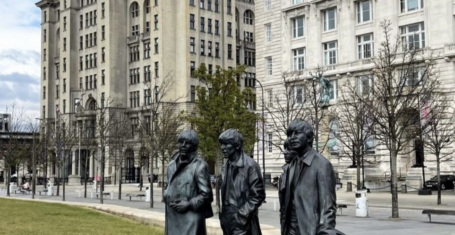
Your degree is a rip off
There are a lot of things you can buy for £30,000, and an Arts degree is probably one of the least interesting.
There are a lot of things you can buy for £30,000.
In this city, it would get you a three bedroom house on a terrace or three one bedroom flats. It would get you six used Volkswagen Beetles, 60 iPads or 3,000,000 penny sweets. However, from this year on, it’s more or less what Liverpool students will pay for a degree, taking maintenance loans into account.
I come from the dark days when fees were reasonable, and even I feel the pinch of bad value. With the lack of contact hours in my subject (English) they cost me about £30 each. To be honest, if you asked me at the end of each one if I’d pay that amount for it, I would probably usually say no, and an English student on £9,000 a year will be paying more like £70 an hour. There are prostitutes who charge less than that, and they’re delivering something more difficult than 50 minutes of discussion on Wuthering Heights. It’s time for you to come to terms with a cold hard fact; your degree is not value for money.

Maybe in science subjects it’s easier to walk away from a lecture feeling like you learned something. Your skill and knowledge is quantifiable. In the Arts though, the same rules don’t apply. The sad fact is that most of these courses could be done by correspondence. For us, term is no more than a reading list with a time limit, and a glorified pop quiz at the end.
With the price of our education now being what it is, it’s time we thought harder about what we’re actually doing all this for. Imagine that you did have to pay it up front. Wouldn’t you think a harder about whether it was worth it before you put your hand in your pocket, and ask more probing questions than; ‘Where’s the nearest pub?’. We should start thinking about that £30,000 as a lump sum in just the way the government doesn’t want us to, because thinking of it as something you pay off in bite-sized chunks a long time in the future is not inspiring enough urgency.
You aren’t blameless either. In course feedback you complain that the lectures are too hard, there isn’t help with exams, you need guidance, the mornings are too early. Again in English, a contingent whined so hard about reading Hilary Mantel’s Wolf Hall last year that it was removed from this year’s course, just because it was ‘a bit long’. I place a high value on university and the impetus it gives you to do things you might never have done otherwise, but which are worthwhile (understanding DNA, learning the violin, developing liver cirrhosis, etc.), but so many people don’t even do the minimum.
Think of a seminar. The tutor asks for your opinion, nothing more. You sit in silence. The silence stretches on. Finally, he answers his own question. Now, you take that class and, forgetting the people who are asleep, hung over or still drunk, and you have the people who are the problem. Who would they’d rather strip naked and do the hula than offer an opinion, who might bolt out of the room like a frightened deer if anyone looks at them. It’s not just this university that’s bad value. It’s you. You’re part of the experience, and if you don’t want it, not only are you throwing away enough money for a fleet of cars, but you’re doing it for everyone else too.
It’s time for us to rise up. We fought the government when they proposed the fee rise, with truly admirable fire and passion. That battle might be over, but the war is still going on. Demand better value. Demand more contact hours, and more meaningful ones at that. Challenge the system which uses ‘group presentations’ as a smooth euphemism for lazy lecturing. Challenge poor facilities and overpriced coffee. Challenge each other. Most of all, never forget that you are a customer here. You bought it, you own it. Make it great, because you deserve it.









































